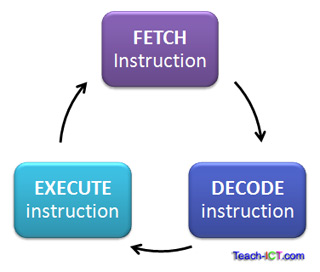Components in a computer:
Hard Drive
The
hard drive’s job is to store everything you keep on your computer. Including
documents, pictures, music, videos and even programs. Hard drives are very
important and need to be kept safe. This is why most people have a backup
system which is where they get another hard drive and copy all important files
onto that. If a hard drive is damaged, everything is lost.
CPU/Processor
CPU
stands for Central Processing Unit, which is also called a processor. It is
located inside the computer case on the motherboard and its job is to carry out
commands. Whenever you press a key, click the mouse or start and application
you are sending instructions to the CPU. As the CPU carries put so many
instructions so quickly it heats up. To make sure the CPU does not over heat,
on top of it is a heat sink. This heat sink absorbs the heat from the CPU. A
processor's speed is measured in megahertz (MHz), or millions of instructions
per second; and gigahertz (GHz), or billions of instructions per second.
Motherboard
The
motherboard is a computers main circuit board. It is a thin plate that holds
the CPU, memory, connectors for the hard drive and optical drives, expansion
cards to control the video and audio and connections to your computer ports,
for example, USB ports. The motherboard connects directly or indirectly to
every part of the computer.
RAM
RAM
stand for Random Access Memory. RAM is your system's short-term memory.
Whenever your computer performs calculations, it temporarily stores the data in
the RAM until it is needed. The short-term memory disappears when the computer
is turned off. In order to keep your document of file you need to save it. When
you save a file the data is written to the hard drive as long-term memory. RAM
is measured in megabytes (MB) or gigabytes (GB). The more RAM you have the more
your computer can do, which is why people add extra RAM to improve performance.
Heat Sinks
Without
heat sinks modern computers wouldn’t be able to run at the speed that they do.
Heat sinks are very important as they stop the CPU from overheating. If they do
over heat it can destroy the entire system which would cost a lot of money. The heat sink cools down the processor after
it runs multiple programs at once.



